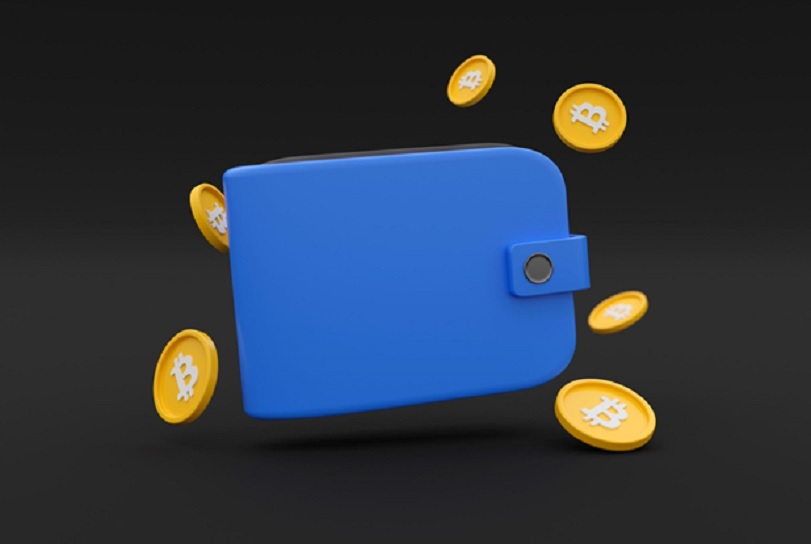Economy
The Future of Crypto Wallets: Trends and Innovations to Watch

Welcome to the fascinating world of cryptocurrency wallets, where technology is always developing and innovating. Blockchain technology and cryptocurrencies have revolutionized how we see and utilize money over the last ten years. Cryptocurrency wallets have been crucial in this transition, giving consumers the means to safely access, control, and use their digital assets. Let’s explore the exciting developments and trends that are predicted to completely alter the landscape of crypto wallets as we look to the future.
Key Takeaways
- The environment of cryptocurrency wallets is changing quickly as a result of new trends and technologies.
- Future crypto wallets will prioritize compatibility, security, and user experience.
- The functionality of wallets will be improved by new technologies like decentralized identification and cross-chain interoperability.
- Development of wallets is being driven by NFT integration and faster transactions.
- It’s important to take note of the growth of Solana Wallet and how it affects the crypto industry.
The Foundations of Crypto Wallets of the Future
Every excellent crypto wallet is built on a solid foundation of cross-platform compatibility, easy user experience, and strong security. The development of wallets will continue to be guided by these pillars, which will guarantee that user cash and private data are always protected. Developers of wallets are investigating cutting-edge solutions like biometric authentication and multi-factor security to address these important issues.
Decentralized Next-Generation Identity (DID)
Integration of Decentralized Identity (DID) is one of the trendiest and most interesting developments in the crypto wallet industry. DID reduces the requirement for users to submit personal information with centralized institutions by giving consumers complete control over their identification information. Users may maintain their identities securely using cryptographic keys and blockchain technology, improving privacy and reducing identity-related dangers. Numerous opportunities, ranging from streamlined KYC procedures to enhanced social connections within the cryptocurrency community, will become available with DID integration.
Integrity Across Chains
Cross-chain interoperability is turning into an essential feature for cryptocurrency wallets due to the constantly growing variety of blockchain networks. Users require the ability to access and manage assets across several networks since they no longer want to be restricted to a single blockchain. Easy asset transfers, portfolio diversification, and participation in a variety of decentralized apps (DApps) are all made possible by wallets that provide cross-chain interoperability.
The Revolution of NFT
Non-Fungible Tokens (NFTs) have completely changed how people own and express their digital creations. In order to meet the rising demand for distinctive digital assets, crypto wallets are keen to embrace this trend and have begun integrating NFT functions. Imagine exploring a digital art exhibition that features your NFT collection while staying in your wallet. NFT integration will make your cryptocurrency experience more enjoyable and unique.
The Rising Star: Solana Wallet
With its quick, inexpensive transactions and quickly expanding ecosystem, Solana has distinguished itself among the plethora of blockchain platforms. The formation of the Solana Wallet was inevitable with the introduction of Solana. Users may access Solana-based tokens through Solana Wallet, take part in DeFi initiatives, and experience previously unheard-of lightning-fast transaction speeds. As Solana gains popularity, its wallet is turning into a crucial resource for both investors and fans.
The Upgrade to the User Experience
The days of clumsy, challenging cryptocurrency wallets are long gone. The user experience is now a top priority for wallet developers, who are working hard to make their products more approachable for both crypto novices and seasoned veterans. These next-generation wallets are intended to empower users and make their journey into the crypto sector enjoyable and interesting, with easy UI, thorough manuals, and educational materials.
Biometrics that Work
Passwords may be annoying, and keeping track of intricate passwords for each wallet is no easy task. Biometric authentication is becoming more popular to make life easier for users. Imagine using a straightforward fingerprint or face scan to access your cryptocurrency wallet. In addition to improving convenience, biometric security strengthens the overall security of wallets by guaranteeing that only authorized users are able to access them.
Final Thoughts
The revolution in cryptocurrency wallets is in full swing, offering us innovative breakthroughs that are revolutionizing how we handle digital assets. The future of crypto wallets offers a more inclusive and user-centric environment thanks to safe storage, intuitive user experiences, and cutting-edge technology like cross-chain interoperability and decentralized identification. As the world of cryptocurrency continues to develop, embrace these trends, keep yourself educated, and be open to new opportunities. Prepare yourself for a journey full of potential and thrills as you explore the crypto landscape. May your digital assets reach new heights and happy holding! Be a part of the intriguing revolution that is transforming the financial landscape because you hold the key to the future of finance.
Economy
Grey to Cut Cross-Border Payment Costs with New USD Offering

By Adedapo Adesanya
A cross-border payments solutions company, Grey has expanded its business banking platform to include US Dollar corporate accounts, bulk international payments, and USDC stablecoin support, all integrated into a single system.
The company is positioning itself as a low-cost, faster alternative to traditional international banking, particularly for businesses in emerging markets as it enables companies to open US Dollar accounts, receive global payments, and send payouts to 170+ countries, including bulk transfers, within minutes.
Grey aims to solve common cross-border payment challenges, particularly the high transfer costs that often range between 6 and 7 per cent of transaction value, prolonged settlement cycles that can stretch across several days, and the limited access many businesses face when trying to open and operate foreign currency accounts. In addition, companies frequently contend with hidden intermediary fees and poor foreign exchange transparency, both of which undermine cost predictability and effective cash flow management.
By integrating USD business accounts and USDC stablecoin functionality into its platform, Grey enhances its value proposition around faster settlement, clearer pricing structures, improved cost efficiency, and broader global accessibility. The expanded capabilities enable businesses to manage international transactions with greater speed, transparency, and operational control.
“Businesses may operate without borders today, but access to reliable global banking remains uneven, particularly for companies in high-growth markets,” said Mr Idorenyin Obong, Co-founder and Chief Executive Officer of Grey. “We’re closing that gap and enabling businesses to move money faster, with greater transparency and control, wherever their clients or partners are based.”
“When payments are delayed, or costs are unpredictable, growth stalls,” added Mr Joseph Femi Aghedo, Chief Operating Officer and Co-founder of Grey. “Grey eliminates those friction points, giving businesses a faster, simpler way to manage payroll, supplier payments, and partner payouts across borders. Adding USD and stablecoin capabilities makes these benefits accessible to even more customers.”
Established in Africa in 2020, Grey has a presence in key markets, including the United States, the United Kingdom, and Europe, and has recently expanded its services and operations into Latin America and Southeast Asia.
Since its inception, the company has consistently enhanced its services to empower digital nomads worldwide, regardless of location. Grey’s offerings include multi-currency accounts, low-cost international money transfers, a virtual USD card, expense management tools, and robust security measures.
Economy
Quidax, Lisk to Unlock Stablecoins, On-chain Financial Opportunities

By Aduragbemi Omiyale
A partnership designed to expand access to stablecoins and on-chain financial opportunities for everyday users and businesses has been entered into between Quidax and Lisk.
The partnership provides a critical gateway for the developer community, as builders on the Lisk network can now leverage Quidax’s robust digital asset infrastructure to access stablecoins and local currencies at competitive rates.
This institutional-grade infrastructure is designed to power “future-forward” financial products, ranging from neobanks and cross-border payment platforms to regional exchanges and global fintech solutions. It will also allow Quidax customers to trade and move value seamlessly using USDT, USDC, LSK, and Ether (ETH) on the Lisk network.
The collaboration will also accelerate the adoption of Web3 solutions that solve real-world financial challenges for millions of customers across Africa by combining Quidax’s deep local liquidity and compliant framework with Lisk’s scalable L2 technology.
In 2024, Quidax became the first crypto exchange to receive a provisional operating license from Nigeria’s Securities and Exchange Commission (SEC).
“The partnership with Lisk enables us to extend our platform to serve more people and cater to the increasing demand from products and services that want to integrate our stablecoin and digital assets product to build products across Africa,” the Chief Infrastructure Officer at Quidax, Mr Morris Ebieroma, said.
Also commenting, the Ecosystem Lead for Africa at Lisk, Ms Chidubem Emelumadu, said, “Africa represents one of the most critical frontiers for blockchain innovation, where the demand for reliable and inclusive financial tools is urgent.
“Our partnership with Quidax expands access to stablecoins and on-chain financial opportunities for everyday users and businesses. At the same time, it gives founders building on Lisk the critical infrastructure they need to create solutions that can scale meaningfully across the continent,” she added.
Economy
Customs Urges Freight Forwarders to Adopt Automated Licence, Permit System

By Adedapo Adesanya
The Nigeria Customs Service (NCS) has urged freight forwarders to adopt its automated Licence and Permits Processing system to reduce the cost of doing business.
This advice was given by the Assistant Comptroller-General of Customs, Mr Muhammed Babadede, during a stakeholders’ engagement on automation held in Lagos on Monday.
He noted that the reform responds to longstanding demands for faster, more transparent and simpler procedures for industry stakeholders, disclosing that Comptroller-General of Customs, Mr Bashir Adeniyi, has approved the full automation of the service’s licences and permits processes.
“For years, stakeholders dealt with paperwork, long queues and uncertainty from manual processing. Those days are coming to an end.
“This sensitisation is across all zones. The goal is to ensure stakeholders understand the automated system before implementation,” Mr Babadede said.
He said automation would enable applications and renewals from offices or mobile phones, eliminating visits to customs formations, assuring stakeholders of a fair and consistent process, and reducing errors associated with manual documentation.
He said automation would improve record-keeping, supervision and service delivery without increasing pressure on officers.
The Deputy Comptroller-General, Tariff and Trade, CK Naigwan, also represented by Mr Babadede, reiterated management’s commitment to seamless implementation.
Meanwhile, the Comptroller of Customs for Licence and Permit Unit, Mrs Ngozika Anozie, praised the Comptroller-General for driving innovation within the Service, saying the automation aligns Customs procedures with global best practice and strengthens institutional efficiency.
According to her, the reform reflects the three-point agenda of the Chairman of the World Customs Organisation, Mr Adeniyi, centred on consolidation, collaboration and innovation.
She said the system would enhance the ease of doing business in the maritime sector and boost national revenue generation.
“Automation will cut business costs and reduce travel risks for stakeholders
“They will no longer travel repeatedly to Abuja, paying for transport, hotels and feeding to process licences and permits,” she said, adding that the platform would automatically reject fake documents and accept genuine submissions, curbing fraudulent practices.
“The CGC is determined to sanitise the system, and we are committed to achieving that objective,” Mrs Anozie said.
On his part, the Assistant Superintendent of Customs, Mr Ibrahim Usman, said the Licence and Permit Unit operates under the Tariff and Trade Department.
He explained that the unit ensures proper issuance of licences and permits and compliance with import regulations.
Mr Usman said all licences and permits expire on December 31 of their issuance year.
He added that the portal would become fully operational after nationwide sensitisation, with stakeholders duly informed.
Customs Area Controller, Tincan Island Command, Mr Frank Onyeka, thanked stakeholders for their continued support.
He urged them to take the exercise seriously to achieve seamless processing across Customs operations.
Stakeholders raised concerns about online payment integration and potential technical disruptions.
Officials addressed the questions and pledged continued engagement to ensure smooth implementation nationwide.
-

 Feature/OPED6 years ago
Feature/OPED6 years agoDavos was Different this year
-
Travel/Tourism10 years ago
Lagos Seals Western Lodge Hotel In Ikorodu
-

 Showbiz3 years ago
Showbiz3 years agoEstranged Lover Releases Videos of Empress Njamah Bathing
-

 Banking8 years ago
Banking8 years agoSort Codes of GTBank Branches in Nigeria
-

 Economy3 years ago
Economy3 years agoSubsidy Removal: CNG at N130 Per Litre Cheaper Than Petrol—IPMAN
-

 Banking3 years ago
Banking3 years agoSort Codes of UBA Branches in Nigeria
-

 Banking3 years ago
Banking3 years agoFirst Bank Announces Planned Downtime
-

 Sports3 years ago
Sports3 years agoHighest Paid Nigerian Footballer – How Much Do Nigerian Footballers Earn





















